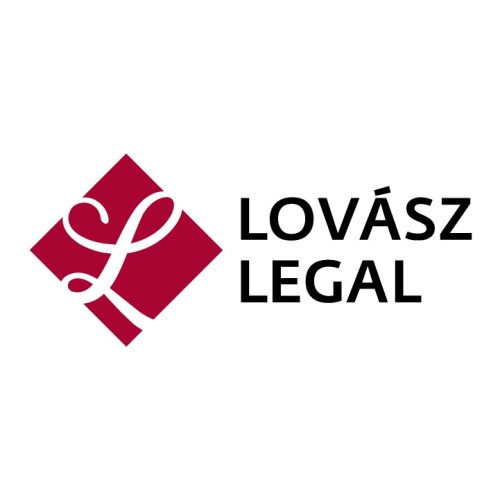Best Hiring & Firing Lawyers in Bratislava
Share your needs with us, get contacted by law firms.
Free. Takes 2 min.
List of the best lawyers in Bratislava, Slovakia
About Hiring & Firing Law in Bratislava, Slovakia
In Bratislava, Slovakia, employment law is primarily governed by the Slovak Labour Code, which outlines the regulations for hiring and firing practices within the city and the country. The law provides a framework that defines the rights and obligations of both employers and employees, ensuring fair practices in the workplace. The legal structure is designed to protect employees from wrongful termination and discrimination while providing employers with a clear guide to lawful hiring and firing processes. Understanding these regulations is crucial for both parties to maintain a harmonious working environment and avoid legal pitfalls.
Why You May Need a Lawyer
There are several situations in which individuals might seek legal advice related to hiring and firing in Bratislava. These include navigating complex employment contracts, encountering disputes over unfair dismissal, addressing allegations of discrimination or harassment during the hiring process, and understanding the legal implications of redundancies or layoffs. Employers may also need legal guidance on complying with labor laws, drafting non-disclosure agreements, and handling employment grievances. Legal assistance ensures that employers and employees alike are protected and informed about their rights and obligations under Slovak law.
Local Laws Overview
Key aspects of local laws relevant to hiring and firing in Bratislava include:
- Employment Contracts: Contracts must be in writing and clearly outline duties, salary, and working conditions. Trial periods cannot exceed three months.
- Termination Notice: Notice periods vary according to the length of employment and the reason for termination, with specific requirements detailed in the Labour Code.
- Collective Redundancies: Employers must follow strict regulations when terminating multiple employees within a 30-day period.
- Wrongful Termination: Employees can contest dismissals they believe are unjustified through legal channels.
- Discrimination and Equal Treatment: The law prohibits discrimination in hiring and employment based on gender, age, ethnicity, disability, religion, and sexual orientation.
Frequently Asked Questions
What is the maximum probationary period allowed in Slovakia?
The maximum probationary period is three months for most employees, although it can be extended to six months for managerial positions.
Can an employer terminate an employee without cause during the probationary period?
Yes, either party may terminate the employment during the probationary period without needing to provide a reason. However, written notification is required.
What constitutes wrongful termination?
Wrongful termination occurs when an employee is dismissed without just cause, without proper notice, or in violation of anti-discrimination laws.
What should an employment contract include?
An employment contract must include essential details such as the job description, salary, working hours, notice period, and conditions for termination.
How much notice must be given for termination?
The notice period depends on the duration of employment and the reason for termination, ranging from one to three months per the Labour Code.
Are employers required to provide severance pay?
Severance pay is mandatory in certain situations, such as collective redundancies or termination for organizational reasons, and is based on the length of service.
How are collective redundancies handled?
Employers must consult with employee representatives, provide written notices, and follow specific reporting procedures with the National Labor Inspectorate.
What are the anti-discrimination protections in hiring?
Slovak law prohibits discrimination based on characteristics such as race, gender, age, disability, religion, or sexual orientation during the hiring process.
Can an employee dispute a dismissal?
Yes, an employee can challenge their dismissal by filing a claim with the district court within a two-month period from the termination date.
Do specific rules apply to foreign employees?
Foreign employees must obtain the necessary work permits and comply with any visa regulations, in addition to standard employment laws applicable to all workers in Slovakia.
Additional Resources
Consider reaching out to the following resources for further information on hiring and firing practices in Bratislava:
- The Slovak National Labor Inspectorate: Provides oversight and information on compliance with labor laws.
- Employment Centers: Offer support and guidance for both job seekers and employers regarding legal obligations and rights.
- Legal Aid Centers: Provide free or low-cost legal assistance for individuals seeking advice on employment-related issues.
Next Steps
If you require legal assistance in the area of hiring and firing, it is advisable to seek the expertise of a lawyer specializing in Slovak labor law. Begin by gathering necessary documentation, such as employment contracts, termination notices, and related correspondence. Schedule consultations with prospective lawyers, discuss your situation, and ensure that you are comfortable with their expertise and approach. Consider reaching out to local legal associations or using online legal directories to find reputable labor law professionals in Bratislava. Additionally, staying informed about your rights and obligations under Slovak law can empower you to make sound decisions in employment matters.
Lawzana helps you find the best lawyers and law firms in Bratislava through a curated and pre-screened list of qualified legal professionals. Our platform offers rankings and detailed profiles of attorneys and law firms, allowing you to compare based on practice areas, including Hiring & Firing, experience, and client feedback.
Each profile includes a description of the firm's areas of practice, client reviews, team members and partners, year of establishment, spoken languages, office locations, contact information, social media presence, and any published articles or resources. Most firms on our platform speak English and are experienced in both local and international legal matters.
Get a quote from top-rated law firms in Bratislava, Slovakia — quickly, securely, and without unnecessary hassle.
Disclaimer:
The information provided on this page is for general informational purposes only and does not constitute legal advice. While we strive to ensure the accuracy and relevance of the content, legal information may change over time, and interpretations of the law can vary. You should always consult with a qualified legal professional for advice specific to your situation.
We disclaim all liability for actions taken or not taken based on the content of this page. If you believe any information is incorrect or outdated, please contact us, and we will review and update it where appropriate.














